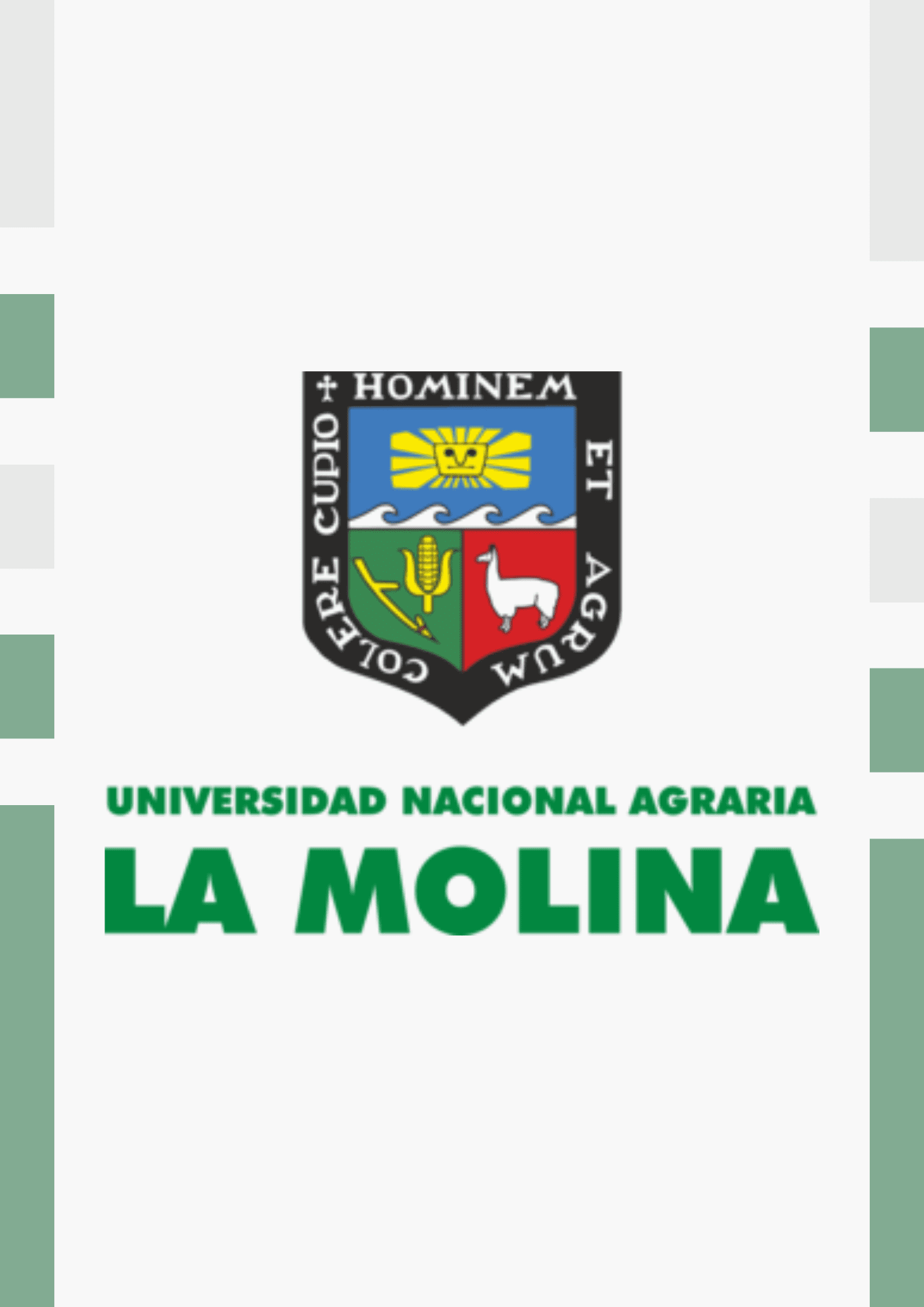Uso de biocarbón en la restauración del ecosistema forestal degradado por minería aluvial en Madre de Dios
| dc.contributor.advisor | Cuellar Bautista, José Eloy | |
| dc.contributor.author | Mamani Cahuana, Alberto | |
| dc.date.accessioned | 2025-10-21T20:13:54Z | |
| dc.date.available | 2025-10-21T20:13:54Z | |
| dc.date.issued | 2025 | |
| dc.description | Universidad Nacional Agraria La Molina. Escuela de Posgrado. Maestría en Innovación Agraria para el Desarrollo Rural | |
| dc.description.abstract | El uso del biocarbón en las plantaciones forestales constituye una alternativa innovadora ante el desafío ecológico y socioeconómico de iniciar procesos de restauración de ecosistemas forestales degradados por minería aluvial en la Amazonía peruana. En la presente investigación se evaluó el efecto de enmiendas de biocarbón en la sobrevivencia y el crecimiento temprano de Ceiba pentandra y Erythrina ulei instaladas en una parcela de 0,5 ha con distanciamiento de 3 x 3 m siguiendo un diseño experimental completamente aleatorio. A los 12 meses de la plantación de restauración, instalada bajo tratamientos de biocarbón enriquecido (T3), biocarbón puro (T2) y testigo (T1), se evidenció que la sobrevivencia temprana de las especies fue mayor al 80 %, categorizada como muy buena, para los tratamientos T3 y T2. Asimismo, se registró los mayores valores de crecimiento en altura y diámetro basal para el tratamiento T3 con 84,56 cm y 1,00 cm para C. pentandra y 258,25 cm y 3,88 cm para E. ulei. El análisis de varianza del crecimiento en altura y diámetro basal de las especies estudiadas resultó altamente significativo (p< 0.001) para los tratamientos aplicados. Además, en el análisis comparativo de medias de los tratamientos, mediante la prueba TStudent, se encontró que el tratamiento T3 tiene mayor efecto significativo (p<0,001) en el crecimiento temprano de las especies, respecto a T2 y T1. Esta información es relevante para el escalamiento y réplica de esfuerzos de restauración del ecosistema forestal degradado por la minería aluvial, puede ser adoptado mediante difusión a actores involucrados y disposiciones de normativas aplicables. | |
| dc.description.abstract | The use of biochar in forest plantations constitutes an innovative alternative to the ecological and socioeconomic challenge of initiating restoration processes of forest ecosystems degraded by alluvial mining in the Peruvian Amazon. In the present research, the effect of biochar amendments on the survival and early growth of Ceiba pentandra and Erythrina ulei installed in a 0,5 ha plot with a distance of 3 x 3 m was evaluated following a completely randomized experimental design. After 12 months of the restoration plantation, installed under treatments of enriched biochar (T3), pure biochar (T2) and control (T1), it was evident that the early survival of the species was greater than 80 %, categorized as very good, for treatments T3 and T2. Likewise, the highest growth values in height and basal diameter were recorded for treatment T3 with 84,56 cm and 1,00 cm for C. pentandra and 258,25 cm and 3,88 cm for E. ulei. The analysis of variance of growth in height and basal diameter of the studied species was highly significant (p< 0,001) for the applied treatments. Furthermore, in the comparative analysis of treatment means, using the T-Student test, it was found that treatment T3 has a greater significant effect (p<0,001) on the early growth of the species, compared to T2 and T1. This information is relevant for the scaling and replication of restoration efforts of the forest ecosystem degraded by alluvial mining, it can be adopted and disseminated through the actors involved and applicable regulatory provisions. | |
| dc.format | application/pdf | |
| dc.identifier.uri | https://hdl.handle.net/20.500.12996/7366 | |
| dc.language.iso | spa | |
| dc.publisher | Universidad Nacional Agraria La Molina | |
| dc.publisher.country | PE | |
| dc.rights | info:eu-repo/semantics/openAccess | |
| dc.rights.uri | https://creativecommons.org/licenses/by-nc-nd/4.0/ | |
| dc.subject | Biocarbón | |
| dc.subject.ocde | Pendiente | |
| dc.title | Uso de biocarbón en la restauración del ecosistema forestal degradado por minería aluvial en Madre de Dios | |
| dc.type | info:eu-repo/semantics/masterThesis | |
| dc.type.version | info:eu-repo/semantics/publishedVersion | |
| renati.advisor.dni | 09367073 | |
| renati.advisor.orcid | https://orcid.org/0000-0001-5087-5719 | |
| renati.author.dni | 10549294 | |
| renati.discipline | 811637 | |
| renati.juror | Guerrero Barrantes, Juan Antonio | |
| renati.juror | Helfgott Lerner, Salomón | |
| renati.juror | Domínguez Torrejón, Gilberto | |
| renati.level | https://purl.org/pe-repo/renati/level#maestro | |
| renati.type | https://purl.org/pe-repo/renati/type#tesis | |
| thesis.degree.discipline | Innovación Agraria para el Desarrollo Rural | |
| thesis.degree.grantor | Universidad Nacional Agraria La Molina. Escuela de Posgrado | |
| thesis.degree.name | Magister Scientiae - Innovación Agraria para el Desarrollo Rural |
Files
Original bundle
1 - 3 of 3
Loading...
- Name:
- mamani-cahuana-alberto.pdf
- Size:
- 2.74 MB
- Format:
- Adobe Portable Document Format
- Description:
- Texto completo

- Name:
- Turnitin.pdf
- Size:
- 2.85 MB
- Format:
- Adobe Portable Document Format
- Description:
- Informe originalidad

- Name:
- Formato de REPOSITORIO.pdf
- Size:
- 93.88 KB
- Format:
- Adobe Portable Document Format
- Description:
- Autorización
License bundle
1 - 1 of 1

- Name:
- license.txt
- Size:
- 1.63 KB
- Format:
- Item-specific license agreed upon to submission
- Description:

